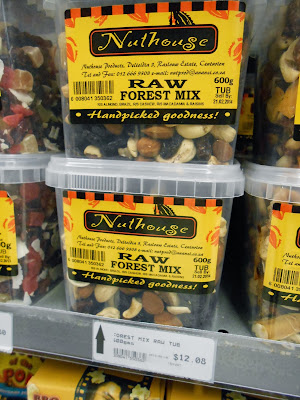After believing for years that the pesticides, processed foods, and Genetically Modified Organisms populating our US grocery aisles were poisoning us, we have been pretty shocked to find that getting away from these things is not as easy as crossing a border or an ocean. I am sorry to say it, my friends, but the food supply even in Third World countries appears to be full of these things.
Because of its recent agricultural history, Zim lives on imports. Our food comes from a variety of places, including Zambia, India, Britain, and especially China and South Africa. Few goods actually come from our country. In addition to giant box stores and small groceries, we also have vegetable stands and roadside markets everywhere. But we have come to find out that many of these items are sourced by imports brought over the borders, as well as by people who shop at box stores and then take them to roadsides. Not quite the quaint locally grown food we had hoped for!
Even most of the maize/sadza grown on small subsistence family farms is GMO, and often grown in combination with a number of chemicals. After a year of having a large garden in our Zim yard, we can attest. Keeping African pests away, whether it is colonies of ants and termites, rats and mice, cutworm, grubs, or birds, going organic is extra challenging here among the tropical wildlife. Our gardener begs us for "chemicals" for the garden. He doesn't know what kind, he just wants something to keep the pests away. Soap solutions, coffee grounds, and vinegar have helped us moderately. But we plant and plant and plant. And we reap about 20 percent of what we sew. It’s hard to blame challenged farmers -uneducated about environmental concerns and trying desperately to feed their families- for dumping magically helpful pesticides onto their crops whenever they’re able.
 Labeling laws are also different in this country. Many goods do not have labels, or have labels that say things like “herbs and other ingredients.” The goods that do have well explained labels are usually from imported processed products that have made a very long journey, and whose ingredients are, for example, fifty unidentifiable items long. It makes eating healthy even harder than in the US, where we at least always had some labels to navigate through its notorious landmines of fake food.
Labeling laws are also different in this country. Many goods do not have labels, or have labels that say things like “herbs and other ingredients.” The goods that do have well explained labels are usually from imported processed products that have made a very long journey, and whose ingredients are, for example, fifty unidentifiable items long. It makes eating healthy even harder than in the US, where we at least always had some labels to navigate through its notorious landmines of fake food. Alternatives are difficult to find. Though the shelves are more plentiful every day, things like coconut oil, alternative milks and flours, gluten-free products, and other foods made for those with allergies or specific diet preferences are not available. Safe seafood can also be difficult to obtain, as the country is landlocked. Though the lack of alternatives is not at all surprising to us, it adds to the challenge of eating the way we would like to. People here are clearly not as often exposed to things like the "latest health craze" or recent studies on heart health, cancer research, etc. So products that are exploding with popularity on American health-food shelves are often no-where to be found in Southern Africa.
I would be remiss if I didn't also mention the expense of eating healthy in Africa. Though there are hundreds of thousands of people who live on less than $50 a month in Zim, no one would ever say they are well nourished and enjoy a diverse diet. In order to eat diversely and nutritiously, the price tag is high. Nuts, for example, are so expensive that a six inch tall tub of mostly-raisin (pictured) trail mix is over twelve dollars. Our family does not eat as diversely and healthily here as we did in our American days of Wholepaycheck. And yet, we spend more on groceries here than when we ate only organic, gluten free food from the bustling Columbus Circle Whole Foods in the heart of expensive New York City.
Our own garden in our backyard is our saving grace. Though we cannot find organic seeds, or even just un-dyed seeds that are not a bright blue, the resulting produce could not be fresher or more in-season. And aside from the rotting batteries and shards of glass we often pull from the soil as we dig, the produce -uglier than a US government shutdown- is extremely cheap and entirely chemical free. (Never mind the typhoid water. Otherwise it's safe, I swear...)
I ask myself all the time if we are healthier or less healthy on this continent than our last. It is always surprising to me that I don't seem to have the easy answer I expected...